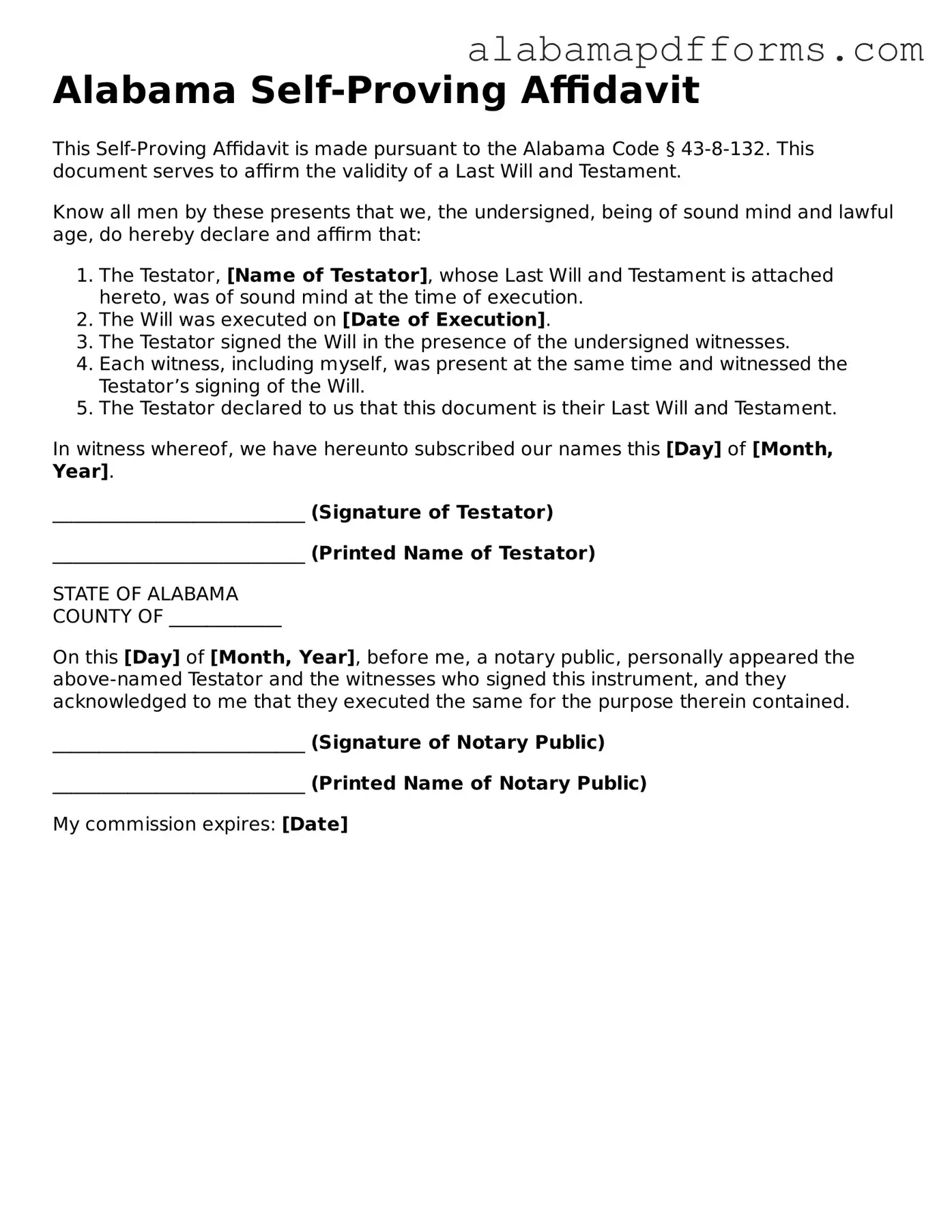Legal Self-Proving Affidavit Document for the State of Alabama
The Alabama Self-Proving Affidavit is a legal document that allows a testator's will to be validated without the need for witnesses to testify in court. This form simplifies the probate process by confirming that the will was properly executed and that the testator was of sound mind. Understanding how this affidavit works can help ensure that your wishes are honored after your passing.
Fill Out Your Document Online

Legal Self-Proving Affidavit Document for the State of Alabama
Fill Out Your Document Online

Fill Out Your Document Online
or
➤ Self-Proving Affidavit PDF Form
Your form is halfway done
Complete and edit Self-Proving Affidavit online in minutes, hassle-free.